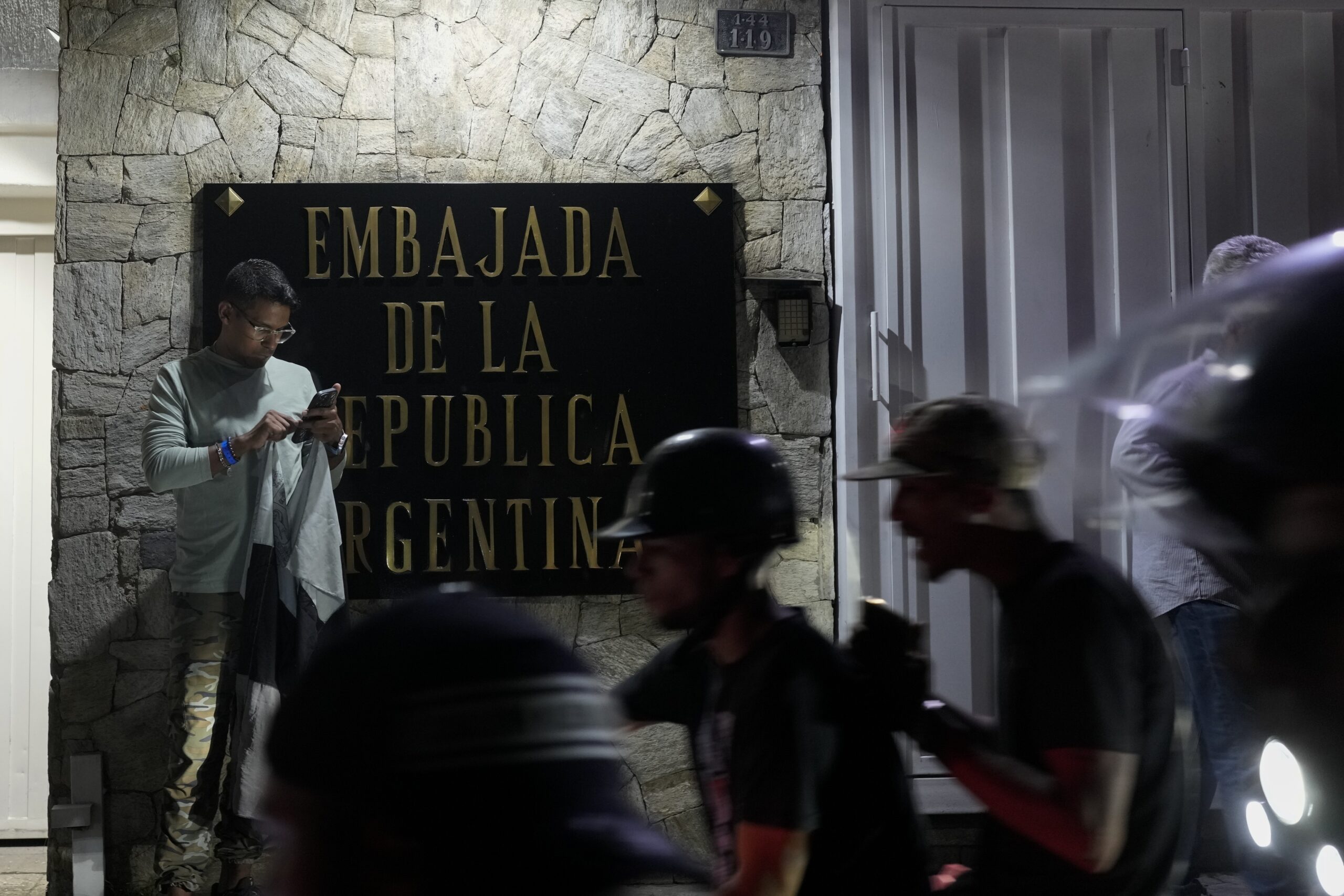
By EFE
03 Aug 2024, 13:28 PM EDT
Four flights, more than 30 hours of travel, a week with almost no sleep and the challenge of leaving behind 20 years of life in just 72 hours were some of the circumstances that marked the departure of Argentine diplomats from Venezuela after Nicolás Maduro’s decision to expel them from the country.
“We had to leave the residence and the embassy within 72 hours. A team of five diplomats, each with their families, a total of 14 people. Schools for the children had to be closed, leases had to be cancelled, cars had to be sold,” said Andrés Mangiarotti, chargé d’affaires of the Argentine embassy in Caracas, speaking to the press after landing this Saturday at the Ministro Pistarini International Airport in Buenos Aires.
Maduro’s announcement came on Monday night, after a series of statements by the Argentine government and the decision of Javier Milei’s executive not to recognize the results of the previous day’s elections that, according to the National Electoral Council (CNE), gave the Chavista leader reelection.
Although the climate before the election was “tense,” Mangiarotti acknowledged that they did not expect to have to “escape” the country in such a short time and noted that some diplomats even had to leave homes where they had lived for the past 20 years.
Since the day after the elections on July 28, he added, the Argentine embassy residence was under surveillance by the Venezuelan police, it suffered “intimidation” and power cuts, and on at least one occasion police cars showed up during the night with armed and hooded men.
“They were quite tense days for the whole team. We had been sleeping for three hours,” said the diplomat, who, along with the rest of the embassy staff, undertook a journey of more than 30 hours with stops on the Portuguese island of Madeira, another in Lisbon and a final one in Madrid, before leaving for Buenos Aires.
Although Maduro also expelled diplomatic personnel from Chile, Costa Rica, Peru, Panama, the Dominican Republic and Uruguay for their “interference-making actions and statements” regarding the elections, the Argentine case acquired particular relevance due to concerns about the situation of the six Venezuelan opponents of the government who have been sheltered in the embassy residence since March.
“They fear for their lives, they feared that someone would come for them,” said Mangiarotti, who stressed that the asylum seekers “still have immunity” after Brazil took control of the diplomatic headquarters on Thursday following the expulsion of Argentine personnel.
“The residence is under the custody of the Brazilian government and the regime should not attempt anything because it is protected by the inviolability of the Vienna Convention on Diplomatic Relations,” said Argentine Deputy Foreign Minister Leopoldo Sahores, who was there to receive the diplomats, in a conversation with reporters at the airport.
“I would like to highlight the professionalism, dedication, composure and presence of mind of the entire embassy team, which has lived through very traumatic hours since Sunday’s elections and these last 48 hours, which have been especially stressful,” said the Vice-Chancellor.
He also referred to the political situation in Venezuela and said that he hopes “that the clamor and demands for the Government to recognize the true electoral result of Sunday, July 28, will not cease.”
“As long as the international community remains united, we are optimistic,” he added.
The Argentine government has not recognized Maduro’s victory, but has recognized the opposition candidate Edmundo González as the “legitimate winner and President-elect,” according to a message published yesterday by the foreign minister, Diana Mondino, on her social network X account.
After several days of the official electoral records of Venezuela being published at: https://t.co/iwMz5ceihs
We can all confirm, without a doubt, that the legitimate winner and President-elect is Edmundo González.
— Diana Mondino (@DianaMondino) August 2, 2024
A subsequent statement from the Foreign Ministry said the country “is following the events in Venezuela with extreme attention and concern in order to make a definitive statement.”
On the election results in Venezuela
The Argentine Republic was one of the first countries to reject and disavow the result of the Venezuelan presidential election on July 28. The evidence gathered so far has only confirmed that position.… pic.twitter.com/ojrF1piYva
— Argentine Foreign Ministry 🇦🇷 (@Cancilleria_Ar) August 2, 2024
Keep reading:
- Gonzalez gains growing international recognition as winner of Venezuelan elections
- Venezuelan Supreme Court requests election records and evidence of electoral system hacking
- Mexico, Brazil and Colombia ask Venezuela to publish the minutes broken down by table
